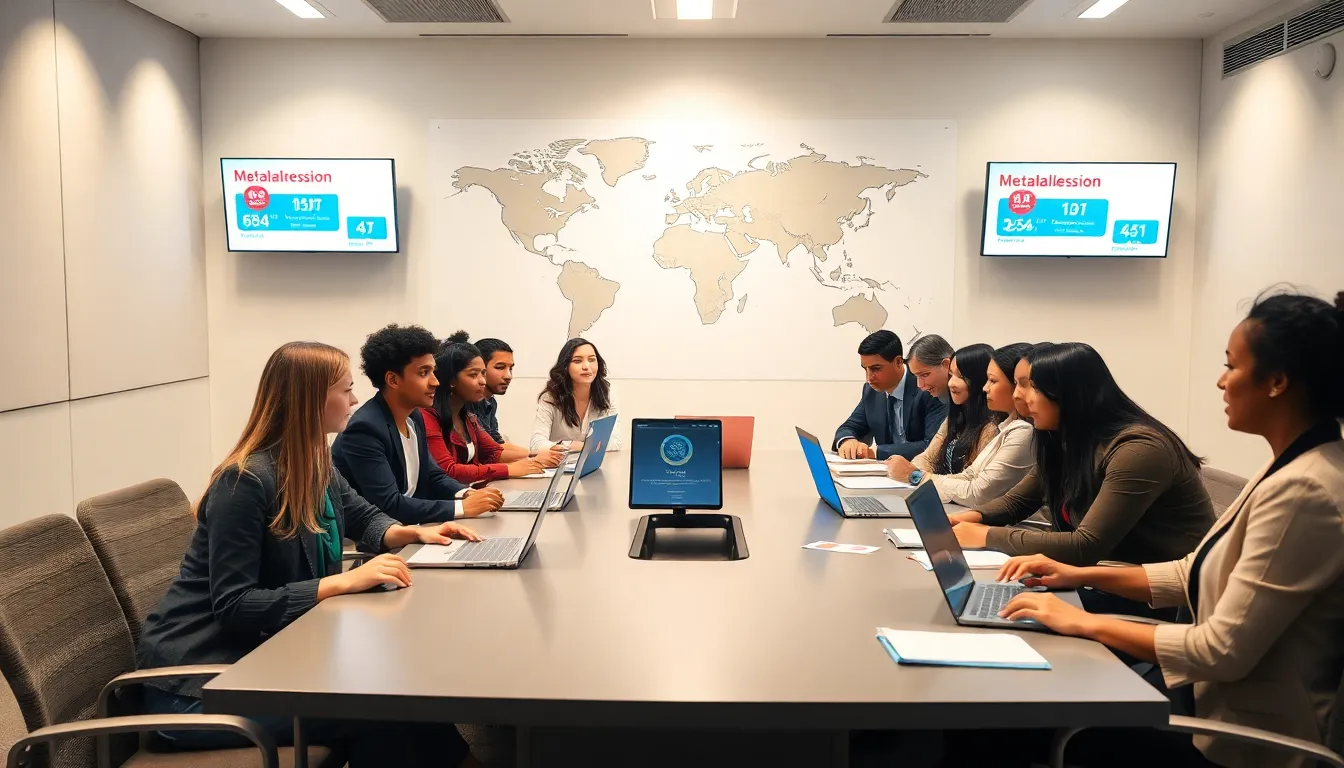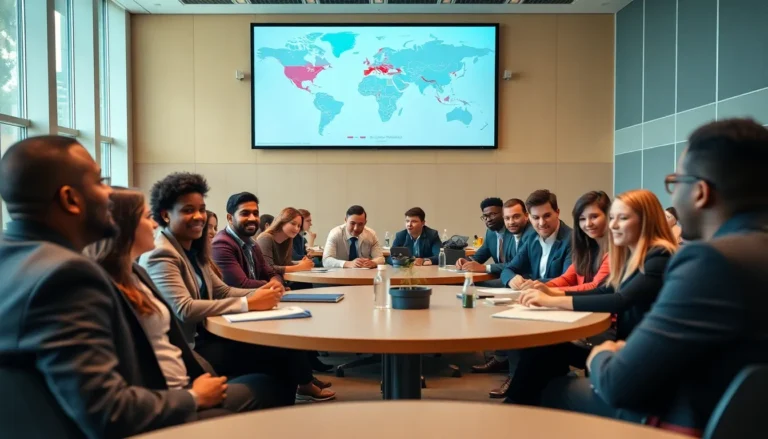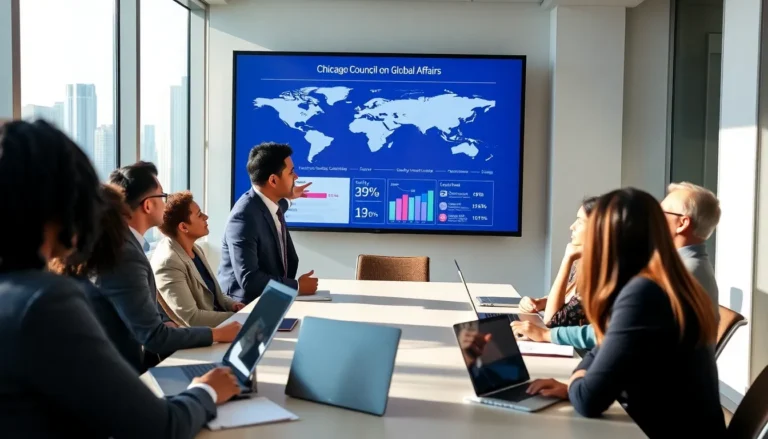Table of Contents
ToggleImagine a career where your daily conversations revolve around world events, international policies, and multicultural interactions. Sounds appealing, right? Pursuing a Masters in Global Affairs not only opens up a treasure trove of knowledge about the world but also prepares individuals for impactful roles on the global stage. This degree is like a passport to understanding complex global networks, equipping graduates with the tools they need to navigate today’s interconnected world skillfully. So, if you’re ready to expand your horizons and possibly save the world, one policy at a time, read on.
Understanding Global Affairs

Global affairs encompass a broad spectrum of topics ranging from international relations and diplomatic strategies to economic policies and global security. Understanding these interconnected elements is essential for anyone looking to make a meaningful impact. Students investigate into the nuances of cultural differences, sustainable development, and geopolitical dynamics. They learn to analyze how global decisions affect local communities and vice versa. The study of global affairs fosters critical thinking, enabling individuals to assess the effectiveness of foreign policies and international treaties. What’s the cherry on top? Engaging with diverse perspectives will challenge students to rethink their beliefs and enhance their ability to collaborate with individuals from various backgrounds.
The Importance of a Global Perspective
In an era defined by globalization, possessing a global perspective is more crucial than ever. Understanding political, economic, and social issues beyond one’s borders is vital for effective leadership. It equips professionals with the cultural sensitivity needed to tackle international challenges. Whether it’s climate change or trade negotiations, decisions often require collaborative solutions that transcend national boundaries. A global outlook encourages empathy, innovation, and adaptability, qualities that are increasingly valuable in today’s workforce. Eventually, for those aspiring to become global citizens, studying global affairs provides the necessary framework to engage productively with complex international issues.
Program Overview and Structure
A Master’s in Global Affairs typically offers a well-rounded curriculum designed to cultivate a thorough understanding of international dynamics. Most programs are structured around core and elective components, allowing students to tailor their education to match their interests.
Core Curriculum Topics
Core courses commonly cover the basics of international relations, economic theory, and security studies. Topics such as diplomacy, human rights, and global governance are foundational, enabling students to grasp the broad landscape of global issues.
Elective Courses and Specializations
On the flip side, elective courses allow students to dive deeper into specific areas of interest. Whether one is drawn to environmental policy, international business, or conflict resolution, specializations cater to various career paths. These tailored courses not only enrich one’s understanding but also ensure graduates are job market-ready with specialized knowledge in their chosen fields.
Practical Experience Through Internships
Real-world experience is an essential component of a Master’s in Global Affairs. Internships allow students to apply their theoretical knowledge in practical settings. Many programs help partnerships with international organizations, NGOs, or government agencies, providing students with invaluable hands-on experience. This immersion not only hones their skills but also expands professional networks. Students often find that internships are stepping stones to full-time positions, giving them a competitive edge in the job market.
Career Opportunities and Outcomes
The career opportunities available to graduates of a Masters in Global Affairs are vast and varied. From positions in diplomacy to roles in non-profit organizations, the possibilities are almost endless. Graduates can find themselves working in government agencies, multinational corporations, or international NGOs. Careers in research, consultancy, and public policy are also popular choices. According to various reports, individuals with advanced degrees in this field can expect higher salary brackets and job placements that offer meaningful work, tackling issues such as poverty alleviation and sustainable development.
Admission Requirements and Application Process
Applying for a Master’s in Global Affairs typically involves a few common requirements. Prospective students usually need to hold a bachelor’s degree, submit letters of recommendation, and provide a statement of purpose detailing their interest in the field. Some programs might require relevant work experience or standardized test scores. The application process often includes interviews, which offer candidates a chance to demonstrate their passion and commitment to global issues.





